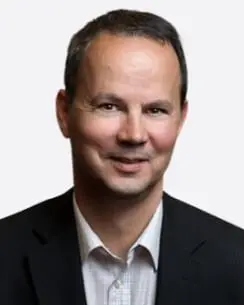 | 1 LU |
 | 1 LU |
A quiet revolution has taken place in a southeastern school district in New Brunswick, Canada. The leadership team came to realize they had to redefine the mindset, structure, and culture of their organization in order to redesign the learning, teaching and leading experiences. By shifting the education culture from an Ego-System to an Eco-Community, the project called "Intr'Appreneur: Tomorrow's Education Today" is transforming the schools into "Innovative Learning Community Centres" addressing the needs of the community. This was not a leap of faith but a leap of leadership. The project is supported by a world-renowned research team with the overarching research question: What impact, in terms of measurable effect, does the Intr'Appreneur project have on addressing the mismatch between the formal education system and the challenges of the innovative society? This session will share the story, the three phases of transformation and findings on the six specific research topics.
Learning Objectives:

Dr. Mario Chiasson is known for his practical insights on learning innovation. Over the years, Mario has helped countless organizations and institutions (schools, districts, ministries, colleges, universities, business and communities) to navigate through disruptive change, develop innovation capabilities and drive continuous improvement. Mario’s primary focus is to assist organisations in system transformation with visioning planing process and design spaces/buildings (physical, digital and hybrid) that influence the learning and the teaching process of new skills aligned with the innovative society. Over 25 years of experience in the education system, Mario is now the Director of Research, Innovation & Change Management for District scolaire francophone Sud, New-Brunswick, Canada. He is currently the Chief research investigator of a longitudinal research project called "Intr'Appreneur: Tomorrow's Education Today". Mario’s personalized approach of real-world experience, enthusiastic style and applied research enables him to assist leaders to rethink and find innovative ways to transform the learning.

David is the Director of Finance and Administration at District scolaire francophone Sud since April 2016. He manages a budget of $171 million, oversee staff in facilities, transportation, and finance, and analyze infrastructure needs to develop long-term planning. David also ensures safety through emergency preparedness planning, advises the District Education Council on administrative and financial matters, and continuously improves administrative processes. Previously, he was the Director of Human Resources for 15 years, managing labor relations with five unions and identifying staffing needs, among other responsibilities. They hold a Master's degree in Public Administration from the Université de Moncton.
This track elevates Research on learning and learning environments and focuses on methodology, findings, and implications for practice. Tangible takeaways are encouraged, including tools and resources that support innovation and improvements to learning environments. There is Art in how we utilize Science to improve our design outcomes and our design and research process. To this end, dissemination of research findings is a priority so that learning environments are re-imagined and enhanced based on evidence and measured impact, not based on trends.
Primary Core Competency
Educational Visioning: Exhibits an understanding of best and next practices related to educational leadership, programming, teaching, learning, planning and facility design. Establishes credibility with educators, community members and design professionals while conceiving and leading a community-based visioning process. Demonstrates the ability to articulate the impact of learning environments on teaching and learning and uses that ability to facilitate a dialogue that uncovers the unique needs and long-range goals of an educational institution and its stakeholders – translating that into an actionable written/graphic program of requirements for the design practitioner.